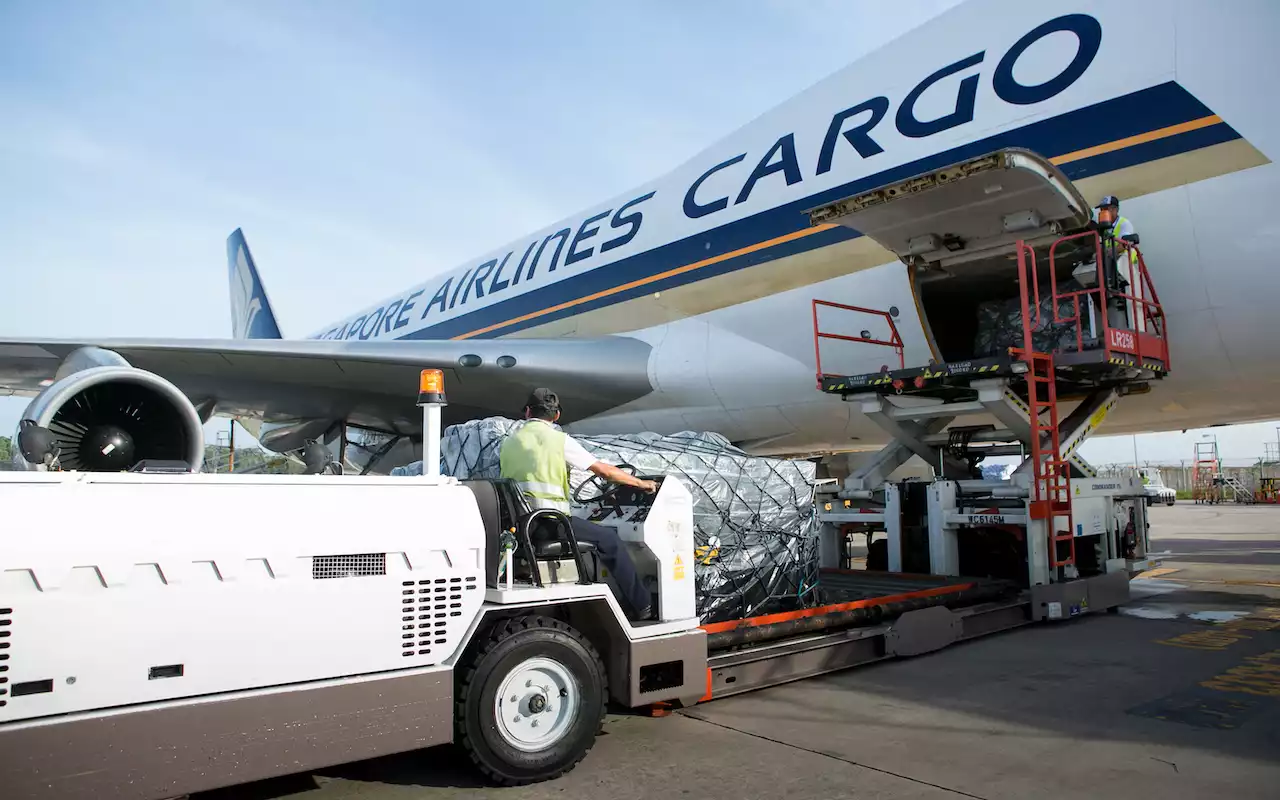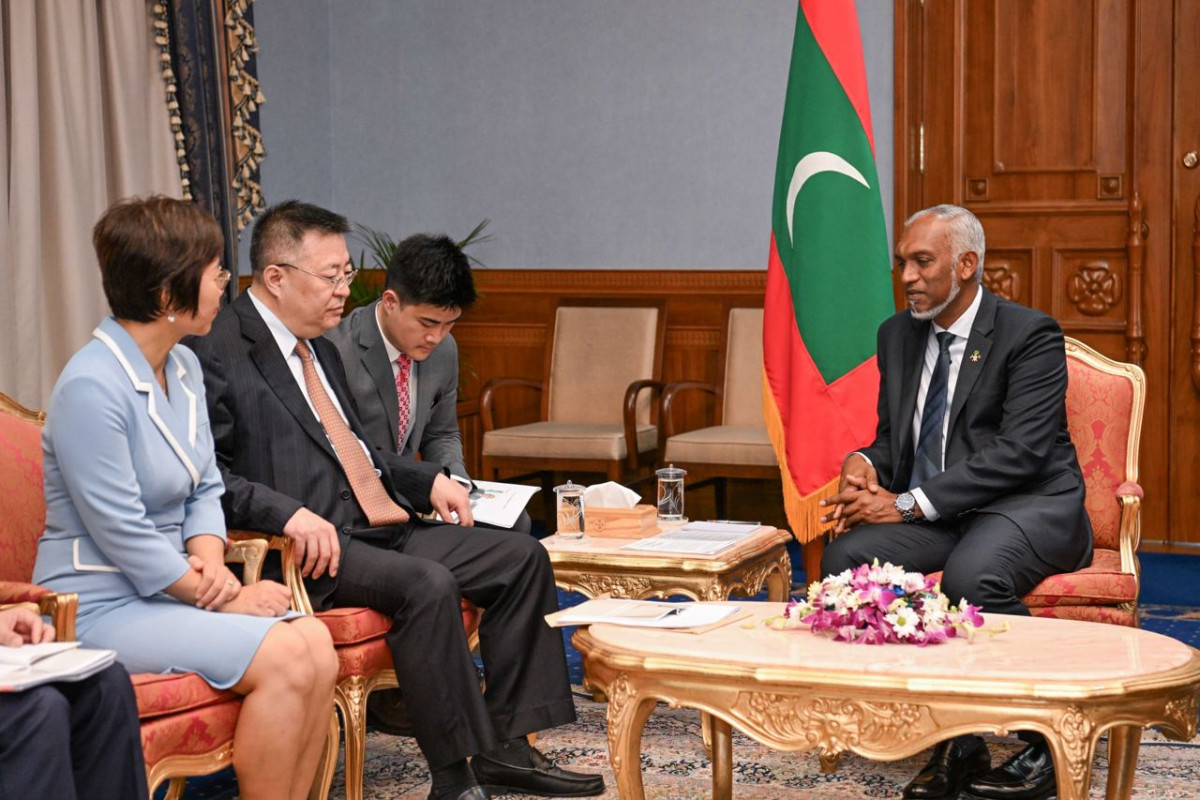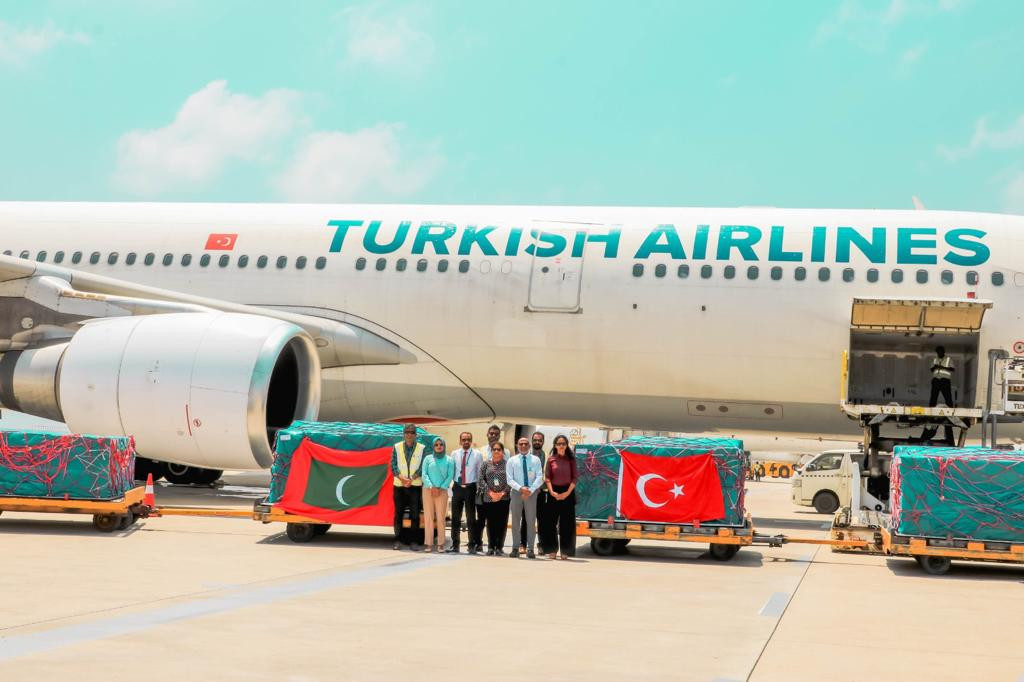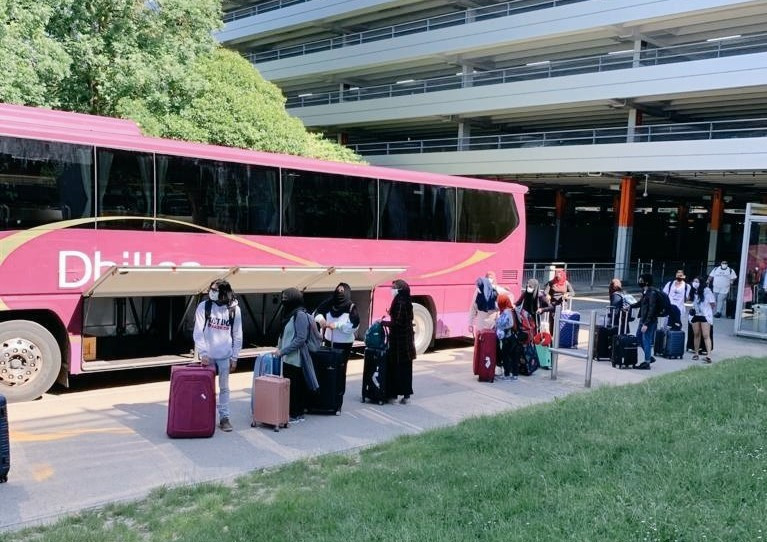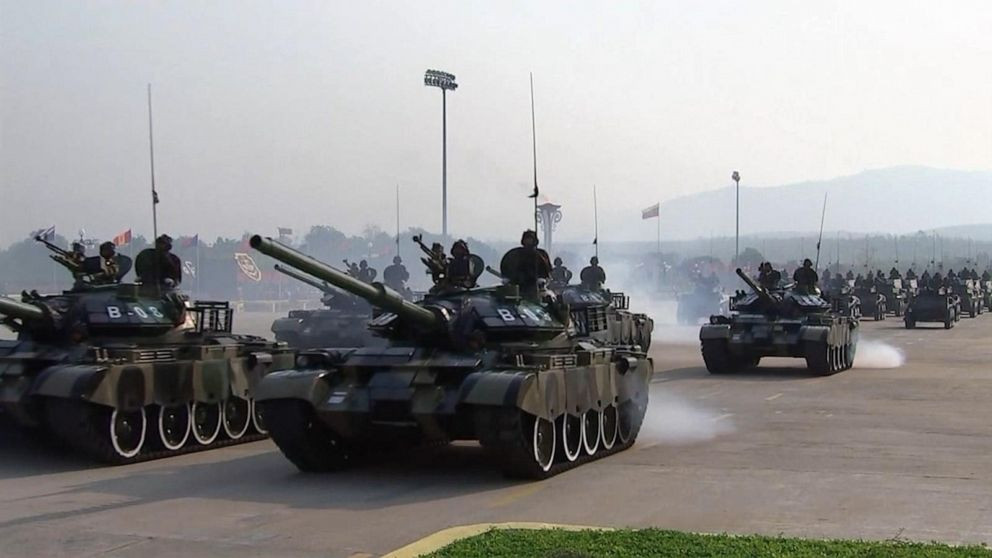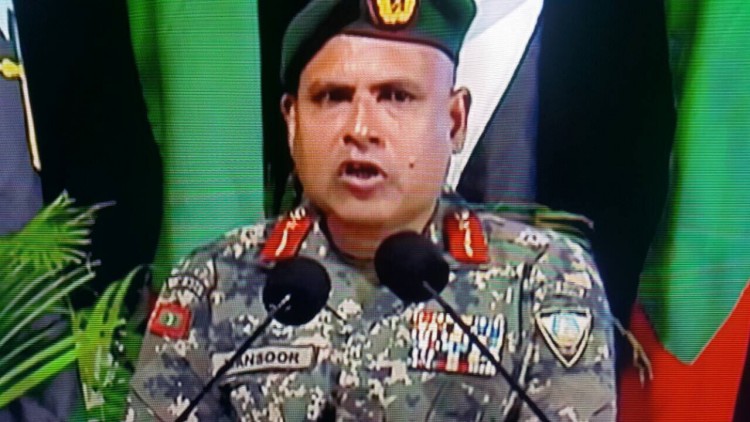India, China, and Maldives - hands that feed
Maldives has, for centuries, strived to maintain sovereignty and thwart foreign influence
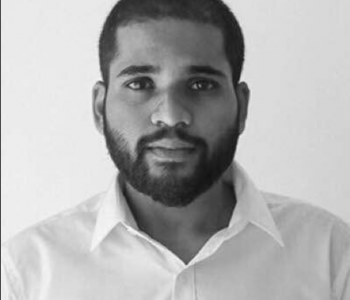

The tallest flag stand in the country, located in the Republic Square, about to be hoisted
Maldives is a small nation with few and infertile lands, and a truly humble foreign policy. However, her consistent aversion to conquest and influence on her sovereignty have echoed in every major chapter of her known history. It has warded off occupation from the Portuguese and the Malabars, and has repeatedly thwarted foreign attempts at being based in the country.
Since antiquity, her people have lived scattered on islands separated by deep channels or shallow sounds, thus it was Maldives’ location and her citizens’ capacity to utilize this asset that allowed the nation to support herself for centuries.
The nation has served as an important harbor and source of scarce capital, namely cowry shells, for ancient traders, with Maldives’ isolation and closeness to important trade routes allowing her to serve a strategic role for ancient merchants, colonists looking to polish their spice trades, military superpowers expanding global presence, and any entity looking to boost its geopolitical significance in the Indian Ocean.
In the days before the boom of local tourism, Maldives had made almost all of her wealth from acting as an important trade port for India, the West, and East Asia, and the had also been coveted for her fish, marine bio diversity, and marine mineral deposits.
Maldives and India
Most of the traders came off of the Indian subcontinent, with socioeconomic ties dating back as early as 256 BCE. The first Maldivian settlers are widely believed to be a Dravidian population from South India, and local sultans had had strong ties with the Moghul Empire.
India was the first nation to recognize Maldives’ independence, though only from a protectorate status, after the British crown granted so in 1965. India and Maldives established formal diplomatic relations a year after, and in 1976 decided on their maritime boundaries. Given Maldives’ shared culture, history, and even marine borders with the South Asian superpower, it is only natural that their leaders possess an affinity towards unified progress.
India has maintained a keen interest in Maldives’ democracy and criticizes what it sees as ill decisions and was a key monitor in the 2013 elections. Further, in a spirited display of military alliance, helped local forces purge the Maldives from two dissidents backed by militants from the People’s Liberation Movement of Tamil Eelam, that aimed to topple the Maldivian government in 1988. The nation was also swift to offer assistance in a water crisis the capital city faced in 2014 – dispatching heavy lift transporters that carried bottled water and navy ships loaded with desalination plants that filtered more.
For most of Republic’s history, Maldivian leaders - from Mohamed Amin Didi, Ibrahim Nasir, who welcomed the world into the country and created avenues for tourism, and even Maumoon Abdul Gayoom, who stayed in office for 30 years – had all held that the state should uphold an inclusive and unprejudiced foreign policy. Nasir’s administration in particular held a reputation for never discriminating, as he had prematurely terminated the contract with the British Royal Navy to operate a base at Gan island in the country’s southernmost atoll, and further rejected offers from Russia and Singaporean corporations to lease same island later.
This further solidified Maldives’ reputation as a country averse to harbouring powerful foreign forces within her borders, and one that strives for sovereignty and carries a desire to dictate her own destiny.
After former President Mohamed Nasheed was elected in 2008 - in what many consider to be Maldives’ first democratic election owing to considerable accusations of human rights violations against his predecessor, Gayoom - the state welcomed an influx of Indian economic, technical, and military companionship.
Critics of the Nasheed administration saw this close association as exploitation and accused India of using Maldives’ reliance upon her for support in national security to erode potential ties with other nations. Nasheed’s ousting in 2012 caused diplomatic relations between the nations to plummet to an all-time low, with his successors deciding to terminate a project given to GMR consortium to develop and operate Maldives’ main international airport. Members of government had rallied and publicly imparted anti-Indian sentiments. India responded by freezing USD 25 million in aid to the country.
Concern Over China
President Abdulla Yameen’s manifesto for the 2013 presidential elections included an ‘India-first’ policy, which would officially treat India as its primary ally. However, recent negotiations with China and President Yameen’s eager acceptance of Chinese loans, have, to his credit, supplemented the economy and allowed the government to initiate urban development projects that would have been ridiculously unfeasible without it.
India has admitted to her growing concern over Chinese presence in the Maldives. Particularly after the parliament, where the ruling party holds a majority, passed a law on foreign ownership of land in the country, that would allow foreign entities to purchase property in the archipelago. The parliament had also passed amendment to the Tourism Act which allows the sale of 10 islands without bid. Sources said that the government had struck a USD 4 million deal to sell Feydhoo Finolhu to China.
China is also no stranger. The commercial heavyweight first established diplomatic ties with the Maldives in 1972, and historians have found cowry shells and coir rope woven in the atolls in ancient Chinese tombs, implying again to relations that trace back to antiquity.
However, Maldives does have an obligation to honour its own initiative to make the Indian Ocean a ‘zone of peace’, as the geopolitical theory dubbed ‘string of pearls’, by American strategists, stipulates that China intends to establish a network of military and commercial foundations along the sea lines of the Indian Ocean, gives more tangibility to China’s potential incentive for providing aid to the Maldives.
In 1999 geopolitical strategists theorized that China intended to install submarine pens, a purpose that this low-lying nation can serve even after the dreaded threat of utter flooding due to sea level rise manifests.
However, there has been little evidence to support that there is any Chinese presence in the Maldives at this juncture, and the government had also reportedly assured India that the region would stay demilitarized. Further research also suggests that Maldives would not be able to support the infrastructure required for submarine operations.
Unclear Circumstances
China’s Assistant Minister of Foreign Affairs, Kong Xuanyou, had last month visited the Maldives, where he walked on the China-Maldives Friendship Bridge – the most acclaimed urban development project backed by the Chinese. Assistant Minister Xuanyou and President Abdulla Yameen had also discussed means to further build bilateral ties between both states.
Two days later, Indian State Minister for External Affairs, Mobashar Jawed ‘M.J.’ Akbar, who met with President Yameen to discuss the state of the ‘India-first’ policy. Reportedly, he had also raised concern over the potential ramifications of Maldives’ ties with China, only to have been assured that China has no military ambitions for the country.
India has also expressed concern over political unrest in the Maldives, deterioration of democracy, and the rise of fundamentalism – the latter could put India at a disadvantage in its bid to maintain advantage over Pakistan, as considerable Pakistani terror groups have been found to have links to Maldivian citizens.
Urban development is definitely encouraged; however, it cannot be denied that China is a ruthlessly ambitious nation. To say that China has little military intention maybe to underestimate the global giant, given that the nation's masses still hail the policies of Mao Zedong, whose Little Red Book eloquently and with brutal realism states universal 'truth' to be that ‘political power grows out of the barrel of a gun’.
A lack of transparency in such policies make it impossible to make solid judgements about what the extent of Chinese presence in the Maldives truly means and what its ramifications to India means. What is clear is that Maldives is important to Chinese oil imports, running through the Strait of Malacca. Undoubtedly, with the ties being as sensitive as it is to India, it would be in Maldives’ best interest to not cross an age-old ally, to not bite the hand that feeds.
READ MORE:
Chinese Assistant Foreign Minister visits 'Friendship Bridge' project site
Indian State Minister raises concern over Maldives-China relations
Trial against alleged terrorist fighter to be held in secret
